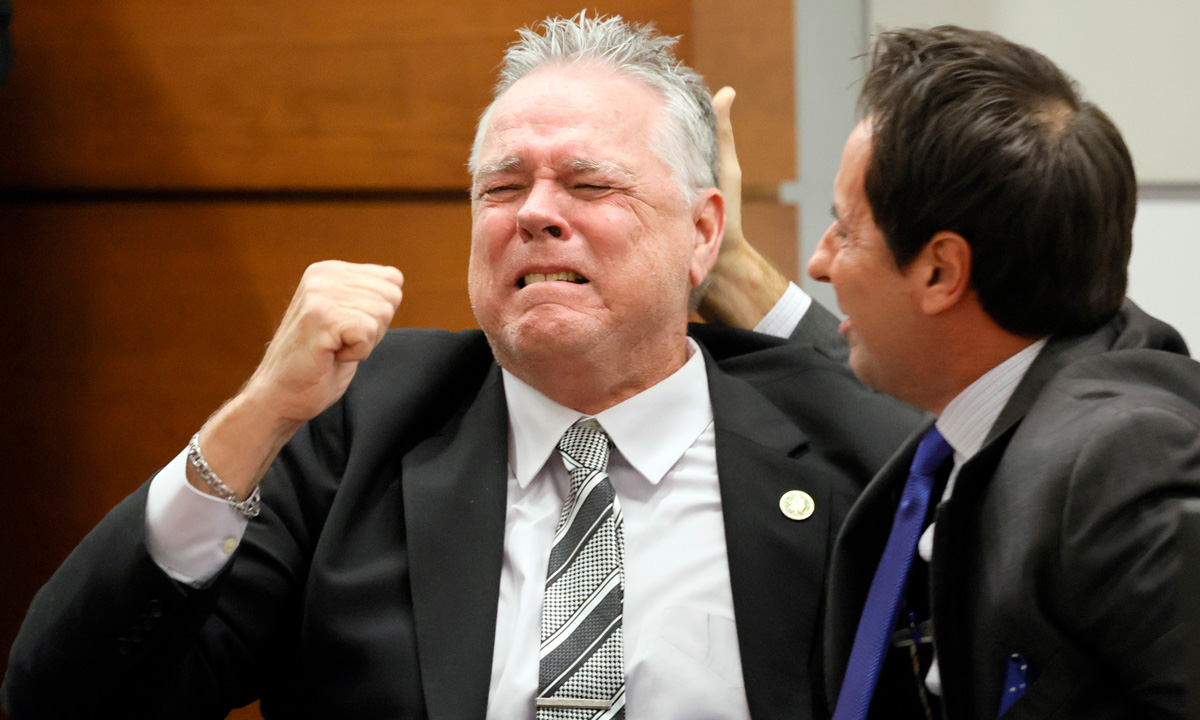Police have no duty to protect individuals, as affirmed by a federal court ruling yet again. Recent events, such as the shooting in Marjory Stoneman Douglas High School in Parkland, Florida, have raised questions about the responsibility of government officials to protect citizens.
However, court precedents have established that police officers are not obligated to act in the interests of individual safety. This lack of duty to protect the public is often overlooked in police reform debates. While police officers are government workers, their salaries are paid from taxpayers’ funds, including fines and fees.
Therefore, it is important to understand the limitations of police protection and the need for individual self-defense.

Credit: m.facebook.com
Legal Precedents
Legal precedents have established that the police have no duty to protect the public. This ruling was reaffirmed by a federal court, confirming that law enforcement officials are not obligated to act in the interests of individuals. The decision places the onus of personal protection on the individuals themselves.
Supreme Court Ruling
In a groundbreaking Supreme Court ruling, it was established that the police have no duty to protect individuals from harm. This ruling, which has significant implications for personal safety and the role of law enforcement, stemmed from a case involving a woman who had obtained a court-issued protective order. Despite having this order, she was still a victim of violence. The Supreme Court held that the police cannot be held liable for failing to protect individuals, as their duty is to maintain public order and safety rather than providing personal protection. This ruling has set the legal precedent that individuals are responsible for their own safety and cannot rely solely on the police for protection.Credit: mises.org
Public Perception
Recent events have sparked public discussion around the role and responsibilities of law enforcement in protecting citizens. Various incidents have led to a reevaluation of the public’s expectations of police services. Here, we delve into the public perception surrounding the notion that police have no legal obligation to protect individuals in certain situations.
Students’ Claims After Parkland Shooting
Following the tragic Parkland shooting, students raised concerns about the government officials’ perceived lack of action and protection. This intensified the debate around the duty of the police and government in safeguarding citizens.
Unsaid Facts In Police Reform Debates
What often goes unspoken in police reform discussions is the legal precedent that establishes law enforcement’s non-obligation to act in the interests of individuals. This fundamentally challenges the common perception of the role of police in ensuring public safety.
Understanding Police’s Position
Government Employees Paid By Tax Dollars
Police are government workers, with their salaries funded using tax dollars. This includes fines, sanctions, penalties, fees, and surcharges.
No General Duty To Protect Citizens
Contrary to common belief, police have no legal obligation to protect individual citizens. The duty of the police force extends to maintaining public order rather than safeguarding individual safety.

Credit: www.the74million.org
Implications And Rights
Courts have ruled that police do not have a constitutional duty to protect individuals.
Under the public duty doctrine, police are not legally obligated to provide protection to specific individuals.
Citizens have the right to self-defense when protection from law enforcement is not guaranteed.
Frequently Asked Questions On Police Have No Duty To Protect
What Is The Duty Of The Police In Protecting Citizens?
The duty of the police is to enforce laws and maintain public order, but they are not legally obligated to protect individuals.
Can I Sue The Police For Failing To Protect Me?
In general, you cannot sue the police for failing to protect you as they have no legal duty to ensure individual safety.
Does The Constitution Require Police To Protect Individuals?
The Supreme Court has ruled that police do not have a constitutional duty to protect individuals from harm.
What Should Individuals Do For Their Own Protection?
Individuals should take measures to ensure their own safety and security as police are not obligated to provide personal protection.
Conclusion
In the face of legal precedents, it’s crucial to acknowledge the reality that police are not legally obligated to protect individuals. This has significant implications for personal safety and highlights the need for individuals to prioritize their own security. Understanding these legal nuances is vital in navigating law enforcement interactions and ensuring personal well-being.
